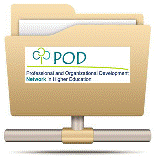Professional and Organizational Development Network in Higher Education

Professional and Organizational Development Network in Higher Education: Archives
Date of this Version
2009
Document Type
Article
Citation
Essays on Teaching Excellence: Toward the Best in the Academy (2008-2009) 20(5)
A publication of the Professional and Organizational Development Network in Higher Education
Abstract
As Plato suggested, pedagogy is inextricably related to the polis. The learner and teacher are constituted by social, political, and economic bounds, and yet the twenty-first century polis is increasingly a world without boundaries. This is a perilous and exciting time to teach and learn. As agents of terror have shown, political boundaries are uncomfortably permeable. Economically, culturally, and religiously, globalization has reduced the power of nation-states and threatened erasure of their boundaries. Isolated identities—nationalistic, religious, linguistic, sexual— are under siege. Nothing is immune from alteration by these large-scale forces. Plato’s insight is that the pressures and possibilities, which determine the larger context of life, reside in a condensed form in the classroom.
The primary learning challenge of the twenty-first century is to master this world without boundaries, especially as brokered by the Internet. The learning styles and challenges of students are increasingly shaped by the Internet’s powerful qualification of boundaries. Students must confront the ease with which the Internet facilitates networking, makes information available, and increases the attractiveness of plagiarism. Twenty-first century pedagogy must search for the best ways to teach in the Internet Age.
This essay argues that old-fashioned and academic disciplines possess resources to frame Internet boundlessness and mine the world’s resources. It concludes by suggesting that, for all that the Internet makes new, existential challenges continue to undergird learning in the Internet Age.
Included in
Curriculum and Instruction Commons, Educational Assessment, Evaluation, and Research Commons, Higher Education and Teaching Commons, Scholarship of Teaching and Learning Commons


Comments
Copyright 2009, Stephen Healey. Used by permission